Gardening from a Wheelchair: An Enabled Garden
Posted on by Clarence Luna
You don't need to use your legs to develop a green thumb. With a few accommodations and modifications, you can do anything on four wheels that others do on two feet. This includes gardening, a therapeutic and stress-relieving hobby. With a few design changes, gardening from a wheelchair can be a fun & fruitful endeavor.
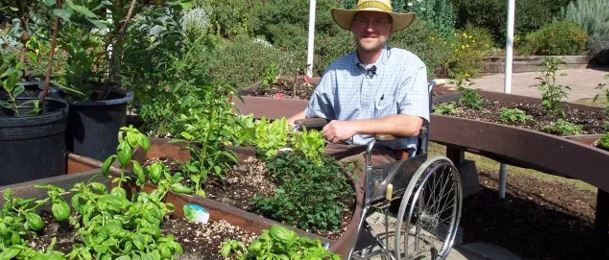
This blog post provides some helpful tips to make you an enabled gardener.
Raise the Planting Beds
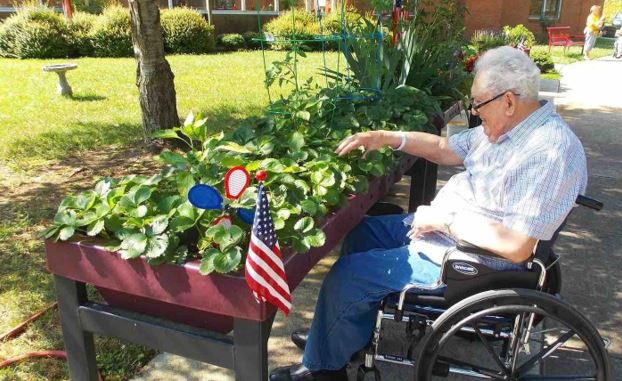
Garden beds have to sit on the ground for plants and flowers to grow. For wheelchair users, the foundations can be raised 2 to 3 feet above the ground to make them accessible. This allows the user to remain seated and reach across the tables comfortably. This also gives plants such as tomatoes or Minnesota’s prairie onion room to grow from 1 to 3 feet high.
A garden box with support legs reduces the amount of dirt needed and gives wheelchair users direct knee-high access. Want multiple beds? Be sure to leave a few feet of space between the beds, or create a U-shaped raised garden, making room for the wheelchair in the middle.
Leave Room on All Sides & Ensure Safe Access
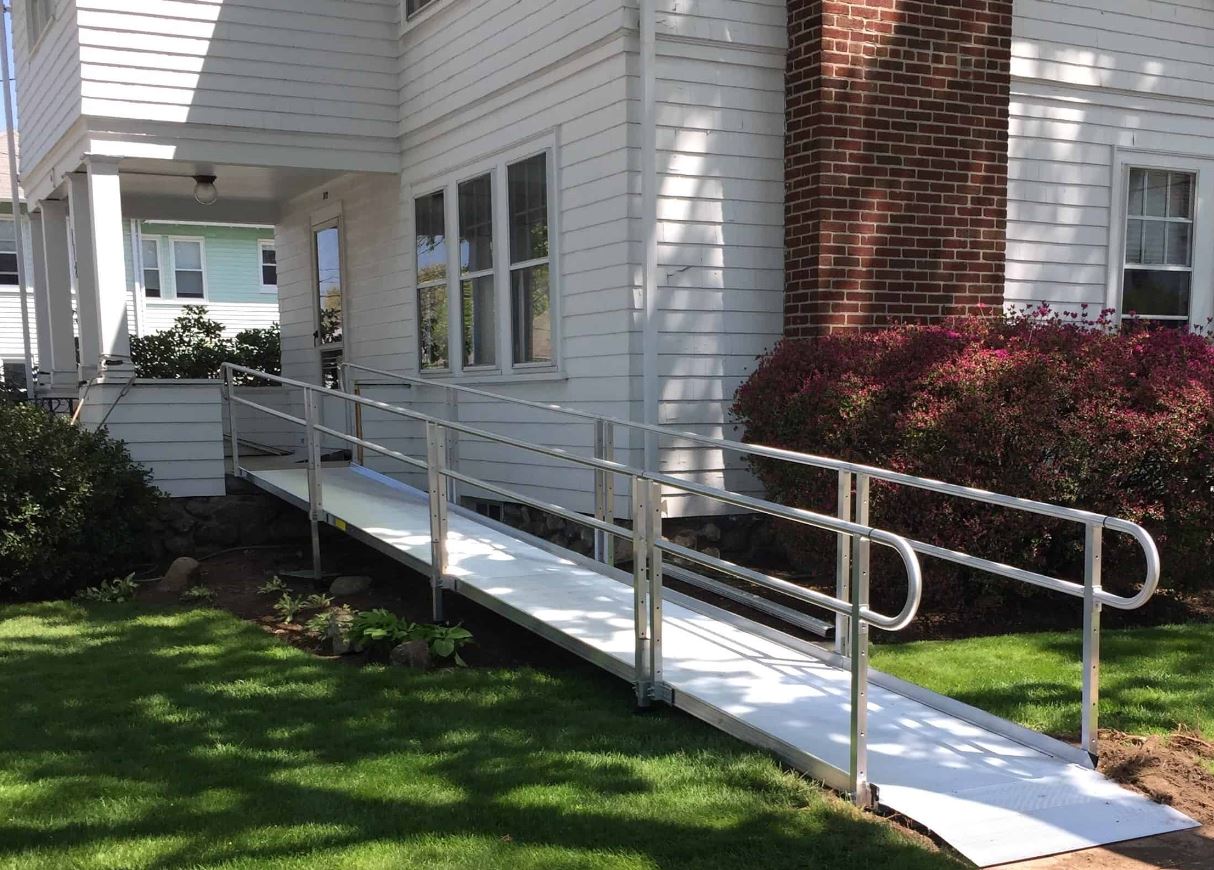 The raised garden bed should be near a wide door with a low threshold and have enough room around it to allow wheelchair access on both sides. Be sure to allow for plenty of sunshine, as most plants need to face south with an unobstructed view of the sun for six hours a day.
The raised garden bed should be near a wide door with a low threshold and have enough room around it to allow wheelchair access on both sides. Be sure to allow for plenty of sunshine, as most plants need to face south with an unobstructed view of the sun for six hours a day.
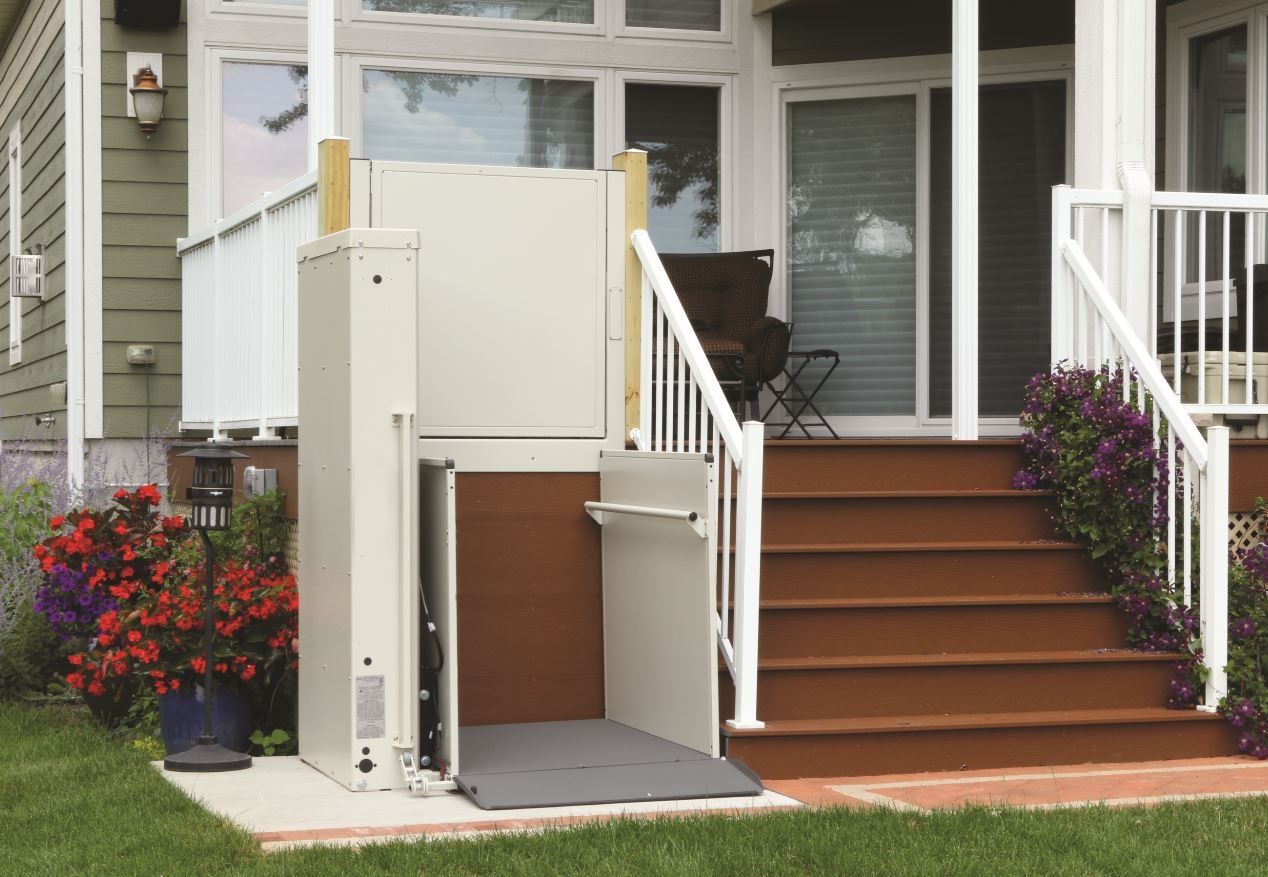 You also want to make sure there's a clear pathway to the garden. A level surface, such as a concrete walkway, is best, as pavers can cause tripping or hang-ups. It’s also helpful to have either a concrete or redwood patio for the raised garden to rest on to ensure the best wheelchair access. If there are steps, you may also consider the professional installation of a wheelchair ramp or porch lift to safely access the garden in the yard.
You also want to make sure there's a clear pathway to the garden. A level surface, such as a concrete walkway, is best, as pavers can cause tripping or hang-ups. It’s also helpful to have either a concrete or redwood patio for the raised garden to rest on to ensure the best wheelchair access. If there are steps, you may also consider the professional installation of a wheelchair ramp or porch lift to safely access the garden in the yard.
Reduce Garden Maintenance
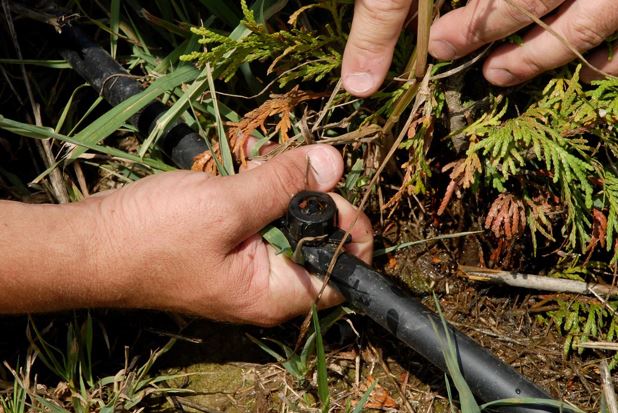
If you place mulch under your plants, you can water less often and reduce the amount of maintenance your plants need. Mulch helps them retain moisture and helps keep weeds from sprouting. It's best to water in the mornings to reduce problems with slugs or insects. To make the garden even easier to maintain, install a small drip-irrigation system or use soaker hoses with timers.
Map out your garden before you start planting. Planting cool-season vegetables like beets and carrots and flowers native to northern states will yield the best results.
Utilize a Wagon to Move Pots & Bags of Soil or Fertilizer
Moving bags of potting soil, potted plants, and fertilizer in a wheelchair can be burdensome. A child's wagon or rubberized tote with wheels is ideal for transporting gardening supplies. Many models have an extended handle and a lid to cover it during rain. The lid can double as a portable, potting table. These small wagons are easy to store under the raised beds.
Position the Wheelchair Correctly
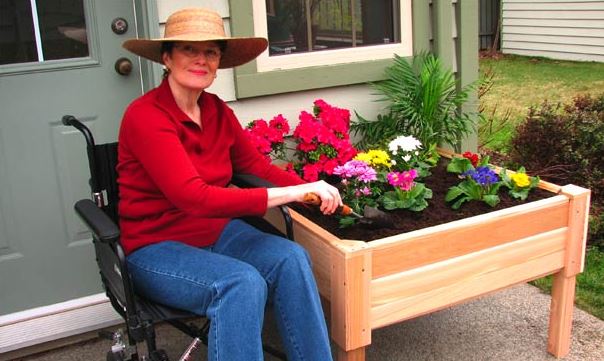
To avoid leaning forward, which can be exhausting, it’s best to work from the side of your chair. That’s why it’s important to build the raised garden in a way that allows for access on all sides. Working from one of the sides of the wheelchair also prevents the chair from rolling forward or backward.
After a long winter cooped up indoors, treat yourself to an outdoor hobby. You don't have to get down and dirty to garden. You just have to raise the dirt to your level!
If safely accessing a garden is a concern due to a staircase limited access, Lifeway Mobility would be happy to help. Contact us to schedule a free consultation
About the Author: Clarence Luna is a freelance writer and former teacher who enjoys gardening and do-it-yourself projects. His current goal: grow tomato plants in his garden as tall as his 6-foot 5-inch frame.
